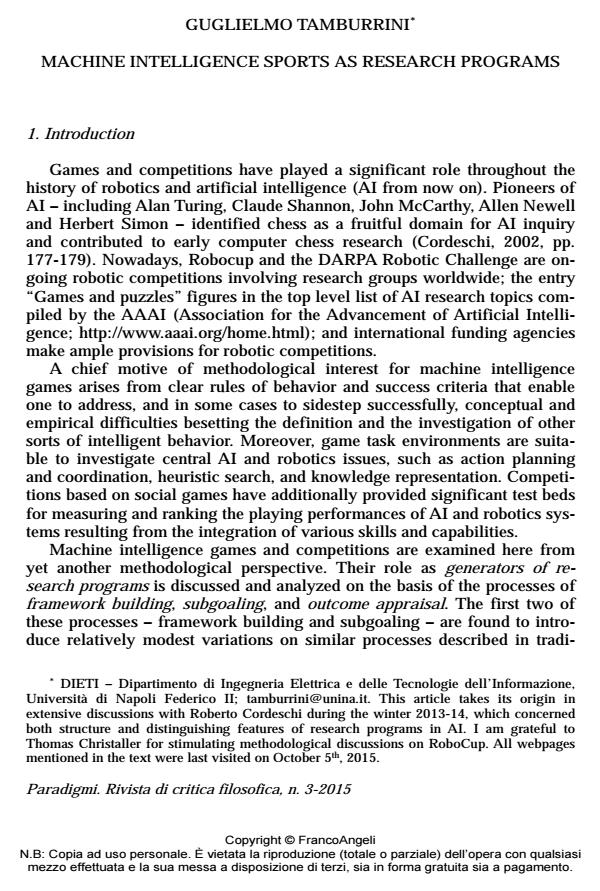Machine intelligence sports as research programs
Journal title PARADIGMI
Author/s Guglielmo Tamburrini
Publishing Year 2016 Issue 2015/3
Language English Pages 15 P. 163-177 File size 60 KB
DOI 10.3280/PARA2015-003010
DOI is like a bar code for intellectual property: to have more infomation
click here
Below, you can see the article first page
If you want to buy this article in PDF format, you can do it, following the instructions to buy download credits

FrancoAngeli is member of Publishers International Linking Association, Inc (PILA), a not-for-profit association which run the CrossRef service enabling links to and from online scholarly content.
Giochi e competizioni hanno svolto da sempre un ruolo significativo nell’ambito dell’intelligenza artificiale e della robotica. In particolare, la loro funzione generatrice di programmi di ricerca multidisciplinari è analizzata in questo articolo da una prospettiva metodologica, concentrandosi sui processi di costruzione della cornice di ricerca, di identificazione di sotto-obiettivi e di valutazione dei risultati conseguiti. RoboCup con i suoi tornei calcistici tra squadre di robot è analizzato come caso esemplare di programma di ricerca basato su giochi. I processi di valutazione dei risultati ottenuti nell’ambito di un tale programma di ricerca mettono in campo un sistema piuttosto articolato di ricompense e penalizzazioni, nel quale si tiene conto della doppia fedeltà dei ricercatori che partecipano simultaneamente a più programmi di ricerca, dei benefici derivanti dalla condivisione di metodiche e competenze tecnologiche in ambienti di ricerca multidisciplinari, delle potenziali ricadute industriali e di altri vantaggi ancillari riguardanti la disseminazione dei risultati e il reclutamento di giovani ricercatori e studenti.
Keywords: Double allegiance of scientists, Machine intelligence games, Methodology of AI, Methodology of robotics, Multidisciplinary research, Research gamification.
Guglielmo Tamburrini, Machine intelligence sports as research programs in "PARADIGMI" 3/2015, pp 163-177, DOI: 10.3280/PARA2015-003010